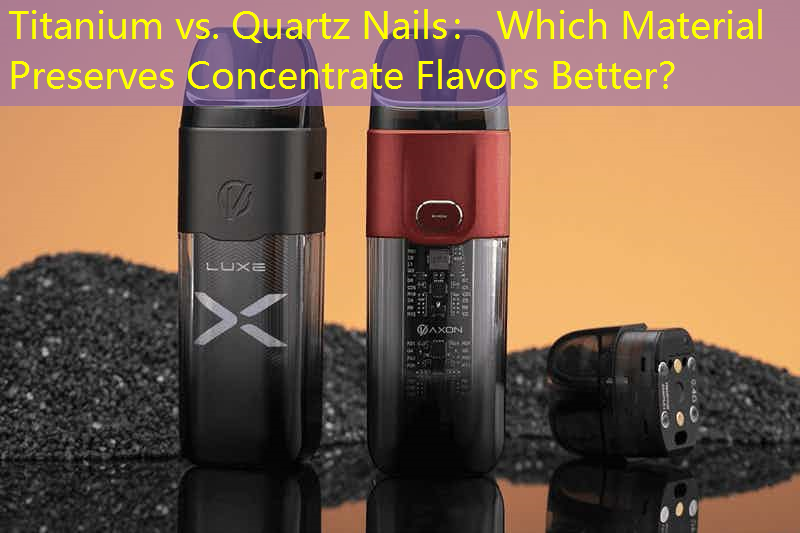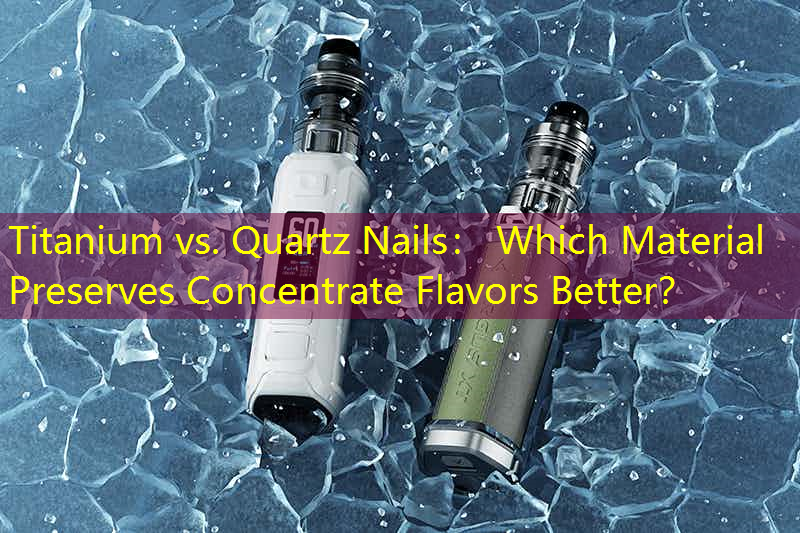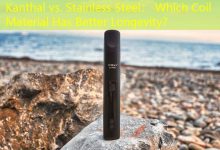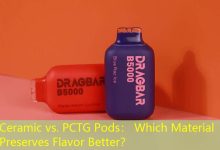# Titani vs. Ungles de quars: Quin material conserva millor els sabors concentrats?
En el món del consum de concentrats, l'elecció del material de les ungles és crucial tant per a la preservació del sabor com per a l'experiència general. El titani i el quars s'han convertit en dues de les opcions més populars entre els usuaris. Aquest article pretén oferir una comparació exhaustiva d'aquests dos materials, analitzant les seves especificacions, estètica, retenció del sabor, realització, mètodes d'ús, Avantatges i desavantatges, i orientar la demografia dels usuaris.
## Introducció i especificacions del producte
### Titanium Nails
Titanium nails are made from high-grade titanium, conegut per la seva durabilitat i propietats de retenció de calor. Normalment estan disponibles en diferents mides per adaptar-se a diferents equips, generalment oscil·len entre 10 mm i 18 mm de diàmetre. The thickness of titanium nails can also vary, often impacting their heat retention capability.
### Ungles de quars
D'altra banda, quartz nails are made from high-quality quartz crystal. These nails are available in similar sizes but often come in a more refined aesthetic, sometimes featuring stylish designs or frosted finishes. Quartz nails are often slightly thicker than titanium nails, providing thermal stability and resilience against thermal shock.
## Aparença i sensació
### Titanium
Titanium nails exude a robust and industrial aesthetic. Their metallic sheen makes them look sleek and modern, while their solid structure gives a sense of durability. No obstant això, due to their construction, titanium nails can become discolored with high-temperature use, which may impact their visual appeal over time.
### Quartz
Quartz nails present a more elegant and crystalline appearance. The clarity of the quartz can showcase the texture and color of the concentrates being vaporized, creating a visually appealing experience. While they may not boast the rugged feel of titanium, the smooth surface of quartz nails offers a premium touch that many users appreciate.
## Flavor Retention and Duration

### Titanium
When it comes to flavor preservation, titanium nails can polarize opinions. Some users argue that titanium can introduce a metallic taste to the concentrates, especially at high temperatures. No obstant això, titanium’s ability to retain heat allows users to achieve a satisfying vapor quickly. The flavor duration may vary based on the cleaning and maintenance between uses.
### Quartz
Al revés, quartz nails are lauded for their ability to maintain the pure flavor of concentrates. The smooth, non-reactive surface of quartz is less likely to impart any unwanted tastes, leading to a more authentic flavor experience. A més, quartz nails require relatively lower temperatures to achieve optimal vaporization, preserving flavors longer.
## La durada de la bateria i la càrrega
While the nails themselves do not feature battery life as they are not electronic, the usage of these nails often involves electronic rigs that may come with a battery. In the context of portable e-nails, both titanium and quartz options generally perform well. No obstant això, many users find that quartz nails allow the e-nail to reach the necessary temperatures more efficiently, potentially prolonging battery life since the device isn’t required to work as hard.
## Rendiment i ús
### Usage Methods
Using titanium nails typically involves heating them until red hot and allowing them to cool slightly before applying concentrates. This method requires a good understanding of timing to avoid burning the concentrates.

Quartz nails, tanmateix, can often be heated to a lower temperature, providing a more forgiving environment for newer users. The lower operating temperatures translate to a gentler vaporization process and a smoother hit.
## Avantatges i desavantatges
### Titanium Nails
**Avantatges:**
– Exceptional durability; resistant to breakage
– Excellent heat retention; quick vapor production
– Less expensive than quartz options
**Desavantatges:**
– Potential for metallic taste
– Susceptible to discoloration over time
– Requires careful temperature management
### Ungles de quars
**Avantatges:**
– Superior flavor retention; no metallic aftertaste
– Elegant design appealing to aesthetic preferences
– Lower temperature requirements for optimal flavor
**Desavantatges:**
– Generally more fragile; susceptible to chipping and cracking
– Often more expensive than titanium options
## Orientar la demografia dels usuaris
The choice between titanium and quartz nails largely depends on the user’s preferences and experience level.
### Titanium Users
– Beginners who prioritize durability and cost-effectiveness
– Users seeking quick and efficient experience without concern for flavor intricacies
### Quartz Users
– Experienced users who value flavor quality and are willing to invest in premium equipment
– Concentrate enthusiasts who enjoy aesthetic presentation alongside functionality
## Conclusió
En resum, both titanium and quartz nails offer unique advantages and disadvantages, making the choice primarily dependent on personal preferences. If flavor preservation and aesthetics are essential to your experience, quartz nails may be the best option. Al revés, if durability and quick heat production are your priorities, titanium nails could be more suitable. By understanding these factors, users can make an informed decision that best fits their concentrate consumption needs.







